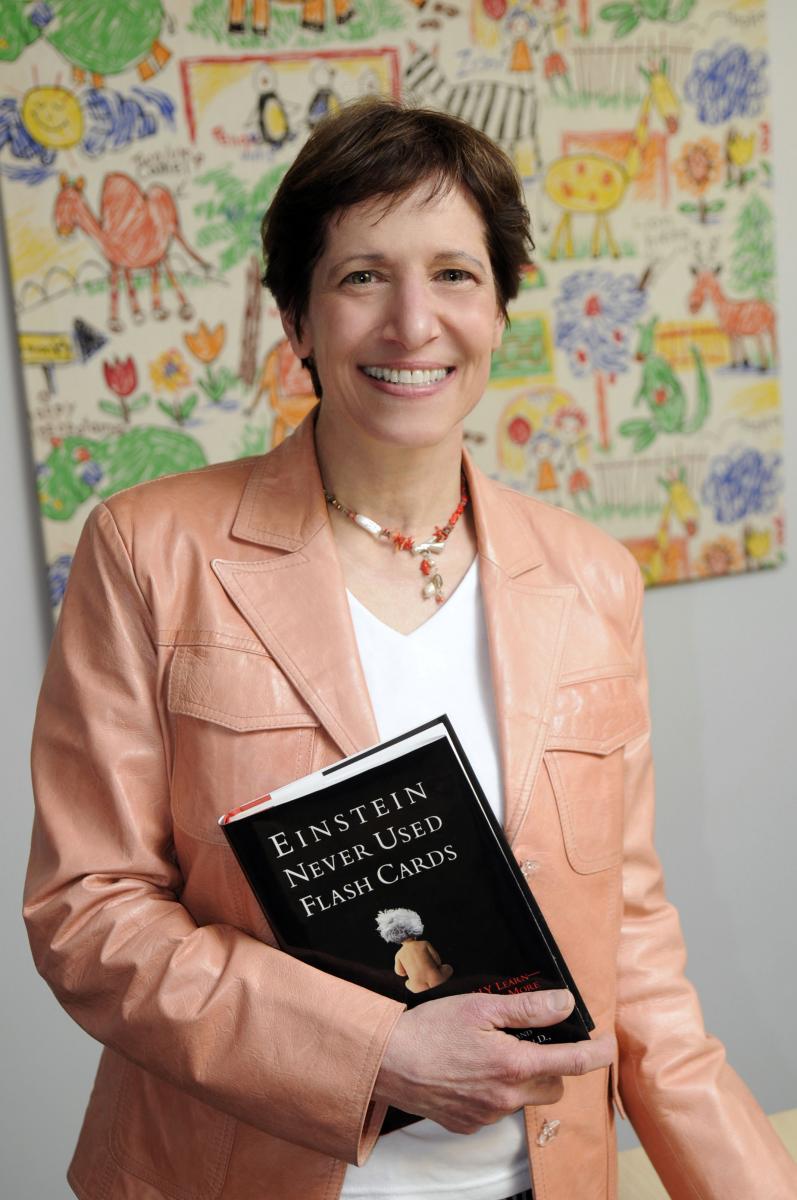Temple psychology professor stages the ultimate block party
 Kathy Hirsh-Pasek is a scientist on a mission.
Kathy Hirsh-Pasek is a scientist on a mission.
In a world dominated by digital gadgets and high-tech toys, the Temple developmental psychology professor hopes to show the world that children learn best through old-fashioned creative play.
This past weekend, Hirsh-Pasek and her research partners made that statement in a big way by hosting New York City children for one of the world’s biggest play dates. Held Oct. 3rd at Central Park’s Naumburg bandshell in Manhattan, the Ultimate Block Party brought out more than 50,000 children and their parents to play hide and seek, build robots, create with Lego bricks, and pretend to be ship captains and princesses.
“We wanted to show families, educators, business innovators and politicians that playing is indeed learning,” said Hirsh-Pasek. “Our hope is that the first annual Ultimate Block Party will mark the beginning of a movement in support of playful learning.”
The well-publicized event was a public manifestation of Hirsh-Pasek’s work as director of Temple’s Infant Language Lab, which has been capturing the attention of academics for years. Research in the lab, where approximately 10-15 studies are run concurrently, focuses on how language is acquired and the role of play in stimulating learning.
“We are after how kids think,” said Hirsh-Pasek. “First, how they learn. Then, how toys, school curriculum and museum exhibits best support their processes. One of our primary missions is to ensure that cutting-edge research doesn’t just stay within the walls of academia, but gets translated into information society can really use.”
To that end, Hirsh-Pasek and her long-time collaborator at the University of Delaware, Roberta Golinkoff, wrote Einstein Never Used Flashcards: How Our Children REALLY Learn and Why They Need to Play More and Memorize Less (2003). Praised by child development professionals, academics and educators, the book’s commonsense approach to parenting debunks myths promulgated by the accelerated learning industry and provides frazzled parents with clear reasons for steering away from computerized and so-called “educational” toys. Instead, the book argues that what children need most is time just to play.
“The real educational toys are not those that scream numbers and letters at you. Rather, they are the ones where children are in command — where (they) discover academic principles and master social skills,” said Hirsh-Pasek.
Despite academic evidence pointing to a relationship between play and learning, play continues to decline as an important part of children’s lives. “We have the equivalent of educational global warming,” said Hirsh-Pasek. “If we don’t get it right in our preschools, we will live with the ill effects 20 years from now when these kids enter the workforce.
“We know that the skills our children need in the 21st century involve collaboration, communication, critical thinking and creativity, and yet our schools remain largely fashioned for the industrial age,” she said. “There is too much focus on teaching the facts, rather than teaching for meaning. ... Yes, they do need to know some facts, but they also need to learn how to learn.”
And that’s where the block party fits in. As co-founder of Play for Tomorrow, a consortium of educators, business leaders, authors and researchers, Hirsh-Pasek helped organize the event to send a message about the importance of play both at home and in school.
“We need to encourage critical thinking and creative innovation both in the classroom and the living room,” she said. “There’s a connection between what happens in the sandbox and what happens in the boardroom.”